June 22, 2021
In The News.
Old Lyme’s ‘Crosby Fund for Haitian Education’ Changes Lives in One of Poorest Parts of Globe
How has an idea conceived in Old Lyme, Conn. been able to grow into an organization that is making a critical difference in the lives of more than 500 students in one of the most economically-deprived parts of the Caribbean island of Haiti, which, in turn, is one of the poorest countries in the world?
The answer lies with one woman, Rebecca ‘Becky’ Crosby, who along with her husband Ted, founded the Crosby Fund for Haitian Education (CFHE) back in 2003.
How did it all begin?
Crosby explains her first trip to Haiti was in 1999 and came about through the First Congregational Church of Old Lyme (FCCOL) when Amy Bruch was working there as an Associate Minister. Bruch had connected with the late Dr. Wayne Southwick of Old Lyme, the retired chairman of the Department of Orthopedics and Rehabilitation at Yale University.
Annually, Dr. Southwick led a team of doctors from Yale to the Albert Schweitzer Hospital in Deschappelles, Haiti, where they performed surgeries round the clock and at no charge for local people. Deschappelles is located in the rural Artibonite Valley about 90 miles north of the nation’s capital, Port-au-Prince.
Inspired by Southwick’s work, Bruch decided she, in turn, wanted to take a team of volunteers to the same hospital to support his efforts. She successfully organized the trip pulling together a group through the church, one of whom was Becky Crosby. They took a sewing machine with them, Becky recalls, and their primary task was to make privacy curtains for the hospital.
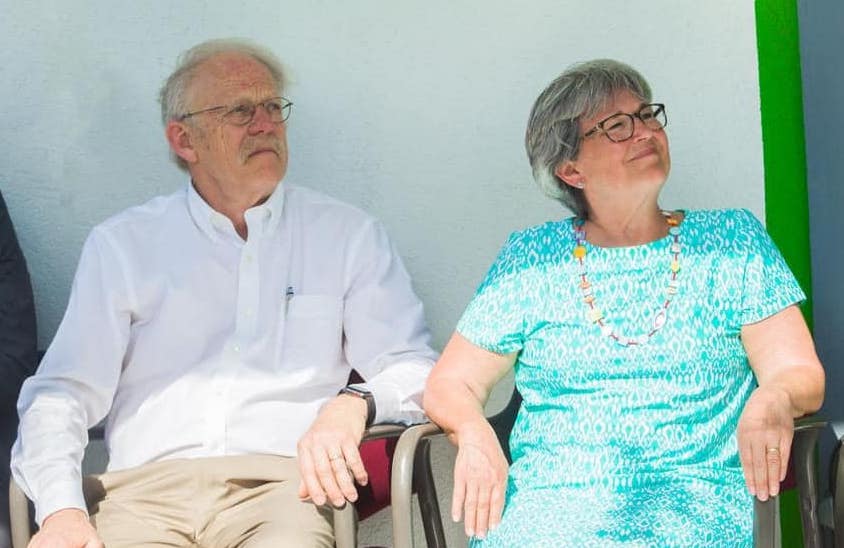
During their time on the island, Becky noticed a young man, who was regularly sitting outside the place the volunteers were staying. One day Crosby asked him why he was not in school and he explained that he had previously been fortunate to have a sponsor from the US, but that those funds had ceased. Since school is not free for anyone in Haiti, he was no longer able to attend as his family simply could not afford it, and he hoped by interacting with some of the American visitors in town that he might be able to find a new sponsor.
Becky says, “I was surprised to learn that school was not free,” and made the decision almost on the spot to pay for the young man — Oltin — to finish his high school education. Doing that turned out to be harder than she thought since there was no postal service in Haiti and the young man had no bank account. Becky, however, was determined and finally found a way to pay his tuition through an American doctor working in Haiti.
Three years later in 2002, Becky returned to Deschappelles to meet with Oltin on his graduation from high school. She recalls, “I saw him and it was a wonderful visit.” She adds significantly, “I could not believe what the gift of an education could do.”
She started to research the overall statistics for education in Haiti and was stunned to find that only 55 percent of children in the country attend elementary school, a number which drops to 15 percent for those who graduate from high school, and finally falling to a mere 2 percent, who go onto university.
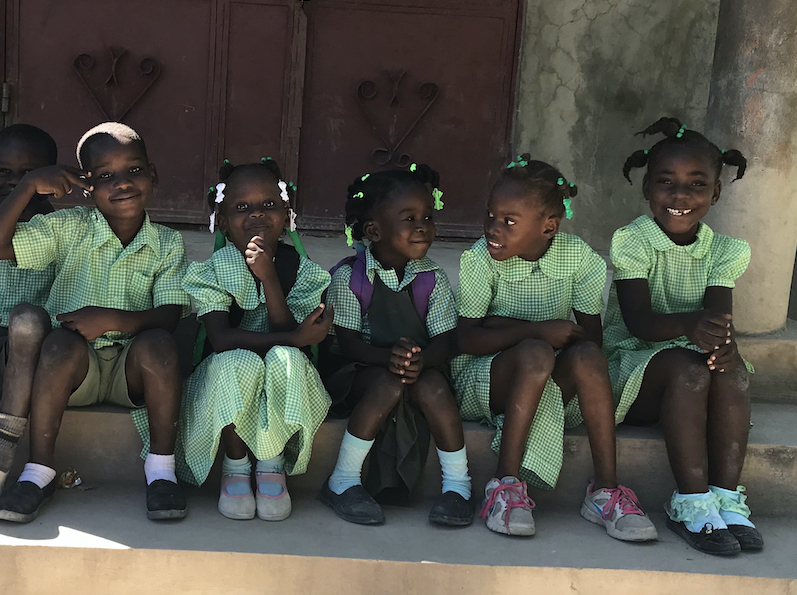
It suddenly became crystal clear to Crosby that, “If you want to build Haiti, you need to educate the youth.” At that transformative moment in her life, she made a personal commitment to try and do something to meet that almost overwhelming objective.
Returning home, she shared the idea with her husband Ted, who was supportive of the concept, and in response set off on his own fact-finding trip to Haiti in 2003.
After Ted returned and expressed his full commitment for the project, Becky returned to Haiti again and began to, “Come up with ways to create the organization” there and “Form a board to select the students [who would receive scholarships.]
Returning to her home in Old Lyme, a determined Becky started work to find donors locally, who were willing to fund students in Haiti, who would otherwise not finish high school.
Not an easy task by any standard, but a short while later, she had successfully recruited 32 people willing to do just that and thus were formed the first seeds of the Crosby Fund for Haitian Education. Becky says, “We started with 32 friends who sponsored 32 students,” adding with a chuckle, “I had no idea when I started where this was leading.”
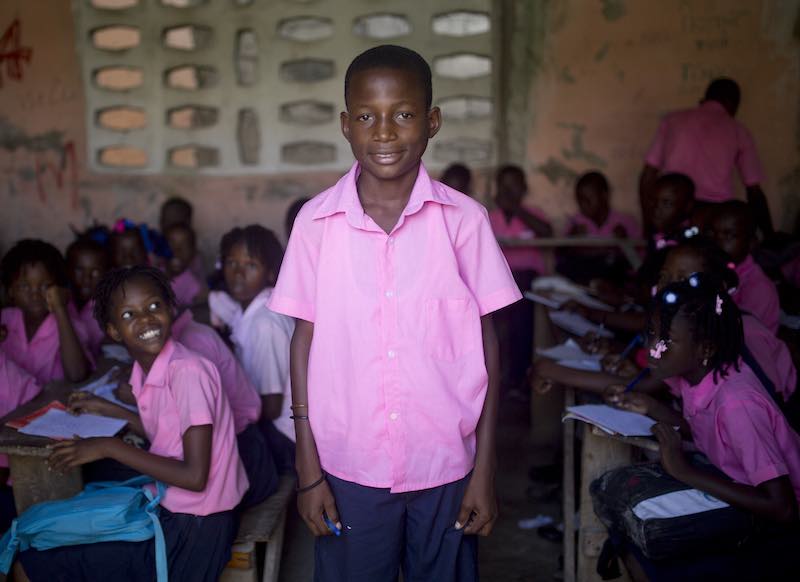
Where is the organization today?
The numbers are nothing short of staggering.
A total of 523 students are now supported under the organization’s banner including 98 in post-secondary schools, 53 at university and 45 in medical technician or vocational training facilities. More than 80 schools across the Artibonite Valley are now involved in the program.
More than 90 percent of the Crosby Fund’s scholarship students advance to university or technical school and subsequently, CFHE graduates are employed at three times the national average.
Moreover, Faulkner Hunt of Lyme, who serves as CFHE’s Marketing Director, states, “Our goal is to get kids educated,” not just as an end in itself, but, “To get them to a place where they are gainfully employed.”
Has establishing the CFHE had any unexpected effects?
The project has been life-changing for Becky on a personal level in many ways.
Most significantly, when the CFHE had reached a total of around 300 students under its wing, she felt she had to step down from her role as Associate Minister at the FCCOL — a position she had taken after Catherine Zall’s departure (Zall had followed Bruch) — and devote her energies full-time to the fast-growing organization.
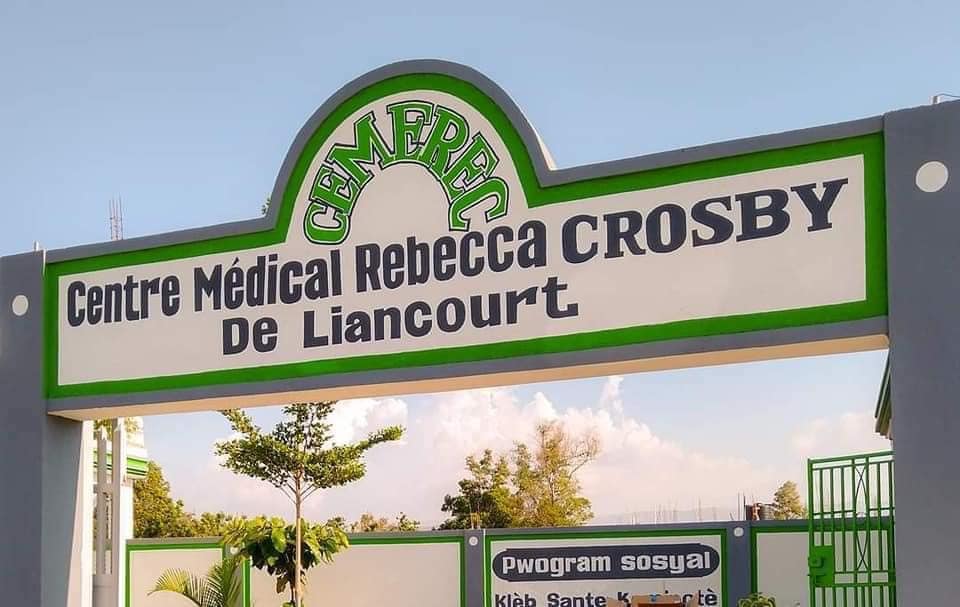
She explains that she stepped down with three clear objectives in mind.
The first was to find or build some sort of “permanent place” for the CFHE, which could both house the staff and offer classroom space. The second was to establish an endowment fund and the third, and perhaps most important, to set up “some sort of staff in the US” to work on “succession planning” for the organization to establish continuity for it in perpetuity.
Becky says proudly, “All of this things are now in place,” which in turn has helped enormously with “Planning for the future.”
Building the Education Center in Deschapelles met the first goal. The three classrooms and and computer lab allow for a wide range of tutoring opportunities, which Becky emphasizes are extremely important, mentioning, “Math is a huge problem.”
Literacy, especially among adults, is another major challenge. “The students’ parents could not read or write … they had no idea how to read a report card,” Becky explains. The CFHE follows a state-run literacy program for adults, which currently has 56 students enrolled, but has recently adopted a youth literacy program sponsored by USAID, which had 52 students registered in January 2021.
With more than a trace of emotion in her voice, Becky said, “It is so moving to see someone my own age struggling to write their own name … and then go back [after the program has been completed] and see them writing easily. It is very, very touching.”
How are the students selected who are to receive scholarships?
Becky explains, “We have a great staff in Haiti, which includes six graduates of our program.” Using their knowledge of the community, they select candidates whom they determine will benefit from financial support. The process clearly works since the graduation rate of students supported by CFHE is significantly higher than the national average.
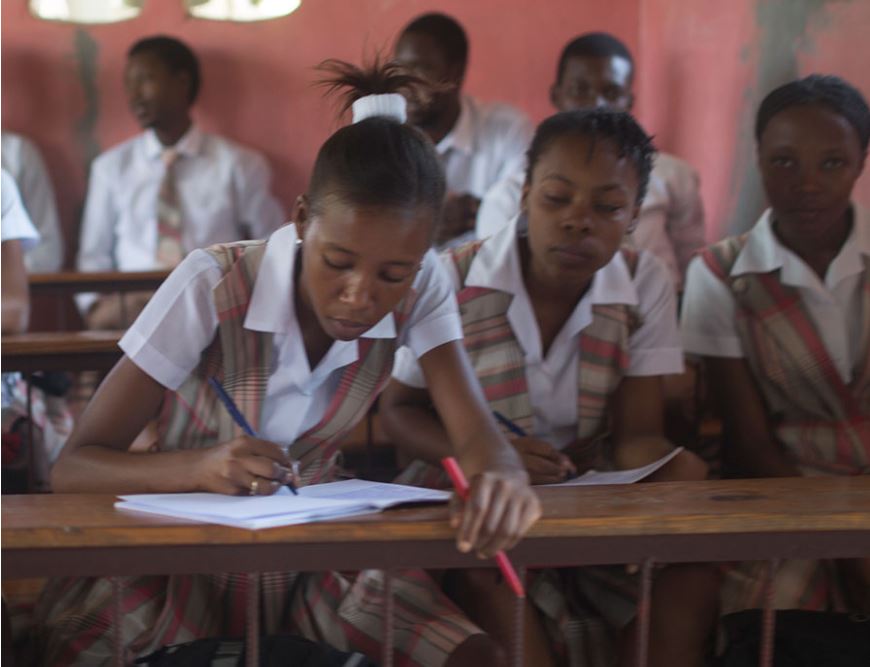
Apart from scholarships and tutoring, another piece of the Crosby Foundation’s work is their career development program. Becky says passionately, “Graduates need jobs … it’s tough to get a job … we’re trying to keep them in Haiti.” The program assists graduates in securing internships and jobs across Haiti, and Crosby points out it has already produced doctors, nurses, computer programmers and administrators, most of whom are now employed in Haiti.
She adds the CFHE has also helped students along other career paths including assisting four agronomy students set up a farming business.
What is the impact of donations from Lyme, Old Lyme?
An extraordinary aspect of the financial support for CFHE is that the “vast majority” comes from Lyme and Old Lyme according to Hunt. He comments it is remarkable, “These two little towns can take up so much compassion for a little area in Haiti,” adding, “It’s such a great example of selflessness.”
Referring to all the CFHE donors, Becky says, “I wish I could bring them all to Haiti so they could see what they’re doing for the youth of Haiti. I wish I could share that experience with the people, who have helped us.”
Looking Ahead
Becky expands enthusiastically on what she calls “the real joy” of the achievements of the CFHE, saying, “When a kid you’ve picked off the streets does really well at school, even university, gets a job, gets married, has kids that go to school … Bingo, that’s the dream! This is what we are trying to do. It’s not going to happen overnight … we don’t expect miracles … but ultimately it’s nation-building one step at a time.”
